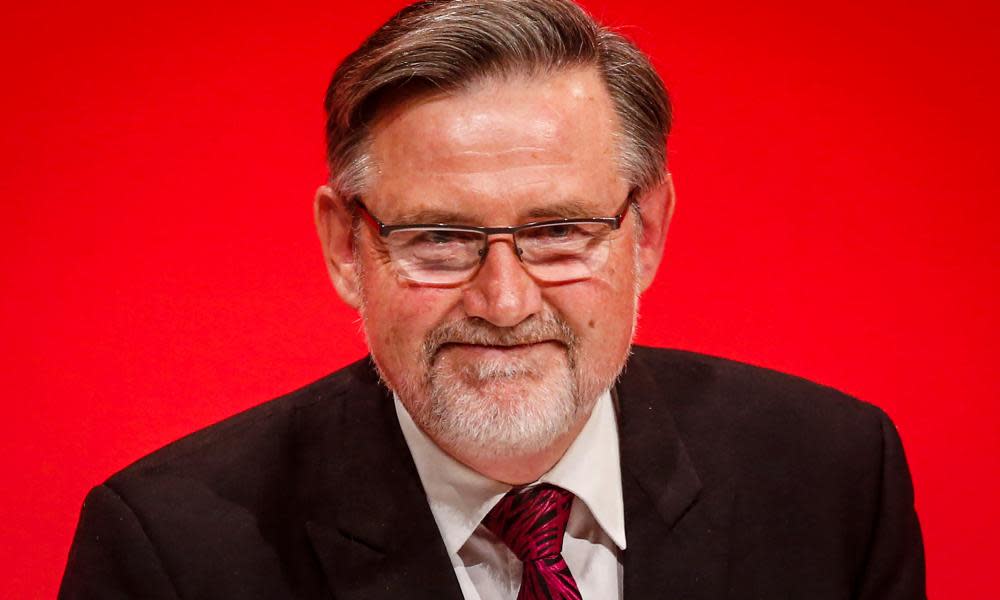Labour MP says second Brexit referendum may lead to social unrest

A second referendum on Brexit could lead to social unrest and embolden the extreme right, a member of Labour’s shadow cabinet has said
The shadow international trade secretary, Barry Gardiner, said that even though he thought Brexit would make the UK poorer in the short and medium term, it would be wrong to try to stop it by holding another referendum because that would appear undemocratic.
His comments were immediately criticised by strongly pro-European Labour MPs who argued that dismissing a second referendum on these grounds was illogical.
Gardiner told BBC Radio 4’s Today programme that, although he supported remain, it was important for politicians to honour the promise they made to voters in 2016 that how they voted in the referendum would decide this issue for good.
Although Brexit would be damaging economically, there was “more to this than simple economics”, he said.
“If you then say to people: ‘We did give you a vote here and we, the remainers, lost the vote, but because you were stupid enough to do what you wanted rather than what we wanted ... we’ll give you another chance to get it right,’ that undermines the whole principle of democracy in this country.”
He went on: “You never give as much succour to the extreme right as when you cut off the mechanism of democratic change.
“If people want to be able to achieve change through democratic means, if they feel that that is being denied to them, they then turn to other, more socially disruptive ways of expressing their views, and that is the danger here.”
When pressed, Gardiner said he was not predicting “violence on the streets” in the event of a second referendum. But there could be some form of disruption, he added.
“What I’m saying is that in any situation, if people feel that the route to change is no longer a democratic route, then you look to social disruption, perhaps civil disobedience, in a different way,” he said.
“This is playing with our democracy. It’s playing with the foundations of our country in a way that is really, really damaging. We have to respect people’s vote in that referendum. We told them we would, we must do it.”
Labour is not calling for a second referendum and Jeremy Corbyn, who is less hostile towards Brexit than most of his MPs, has always strongly played down the prospect of the party backing one.
But the party has not formally ruled out voting for a second referendum, and at the Labour conference in the autumn many activists will be pushing for the idea to be embraced, buoyed by polling evidence showing that further vote is popular with Labour supporters.
Responding to Gardiner’s interview, the Labour MP Chris Leslie tweeted:
When @BarryGardiner says giving the public a final say on Brexit would be “undemocratic”, perhaps he’s missed the bit about #PeoplesVote being...a democratic voice for the people.
We don’t stop having general elections if Tories win. We shouldn’t deprive public their say on this— Chris Leslie (@ChrisLeslieMP) August 21, 2018
Tom Brake, the Liberal Democrats’ Brexit spokesman, also said he was “appalled” by Gardiner’s line of reasoning.
Appalled to hear Labour's spokesman @BarryGardiner dismissing the idea of a final say on the deal. Not democratic apparently. Labour Front bench continue to aid and abet Tory #Brexit #FBPE
— Tom Brake MP (@thomasbrake) August 21, 2018
In a separate interview on the Today programme Jeremy Hunt, the foreign secretary, said the government would never sign up to a Brexit deal that was “not consistent with both the letter and the spirit of the referendum”.
He added: “It would be absolutely fatal for the UK if we were not to agree to something that was consistent with what people asked because we are a democracy.”
Hunt also said that, although he was “cautiously optimistic” that the UK and the EU would reach an agreement, the chance of there being no deal was “not negligible”.

 Yahoo News
Yahoo News 
